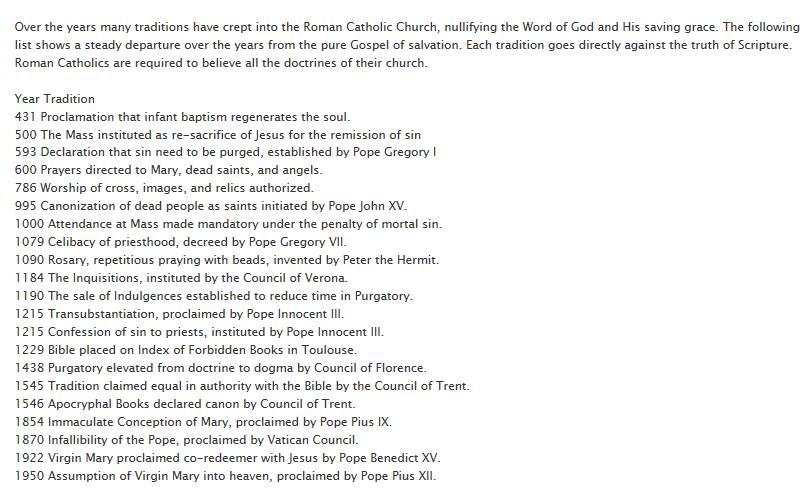I have serious doubts about this.
"Capital punishment is cruel, inhuman and an offense to the dignity of human life. In today's world, the death penalty is 'inadmissible, however serious the crime' that has been committed."
1. What about the Mosaic Law? I have yet to hear a defense of [recent] papal statements, e.g., from St. Pope John Paul II and from Pope Francis (which, it seems to me, are much stronger than Pope John Paul II's) which are consistent with the judicial practices of the ancient Jewish State.
If you tell me that the death penalty is permissible only in those cases in which it is strictly necessary for the defense of the civil community, then I'll start enumerating the crimes in the Mosaic Law which call for capital punishment, and I'll point out that several of them do not put the civil community in any real danger. Killing such persons does not constitute an act of civic self defense. In fact, picking up sticks on the sabbath has nothing to do with civic justice at all.
Do you wish to defend the pope's statements? Then read the Law, remind yourself that it was holy, just and good (Romans 7:12), and explain to me what plausible reading of the Law coheres with the pronouncements of St. Pope John Paul II and Pope Francis.
But, perhaps, you will tell me that God is the Lord of life and death, and he can confer the authority to kill on anyone he pleases, since all deserve to die the death of nature (as St. Thomas Aquinas says). That would, of course, be a nice dodge and incredibly unhelpful, since we are here dealing with a civic code of legal justice (albeit one which was divinely revealed).
Again, how can Pope Francis and Pope John Paul II condemn torture when the Mosaic Law itself commands it, in particular, as a punishment for crime (up to 30 lashes for certain crimes, as I recall)?
But that is a religious objection.
A greater objection is that the statements of these two popes do not cohere with the apparent datum of philosophic reason. That the State put certain persons to death as the due merit for their crimes is a strict obligation of justice. Are you a fan of Aristotle? Then consider that in Nicomachean Ethics V, Aristotle makes strict arithmetic proportion the standard of criminal/retributive justice. Not mere reciprocity is enough, Cruciform. The criminal must pay back what he took, and he must be punished in addition.
If you apply strict arithmetic proportion to certain crimes (e.g., murder), you will find, I believe, that the strict obligation of justice is that the criminal die, and not only that, but that he die a painful death. Our man, Cruciform, is a serial rapist and murderer who subjects his victims to the cruelest tortures? Into the brazen bull with him. He
deserves nothing less, and the State owes it to him. After all, he has a
right to it! If the State withholds from our criminal what is his right, then the State violates the order of justice.
Consider furthermore the testimony of St. Thomas Aquinas (who holds, as I recall, in the
Summa Theologiae, that certain crimes reduce the criminal to the status of a brute beast and, thus, may be killed by the State authorities for his crimes) and of Immanuel Kant (who holds that the death penalty is strictly required for certain crimes).
And have you read Plato's
Laws, Cruciform? The death penalty abounds.
"But charity," you will say, "should stay the State's hand, shouldn't it? Perhaps the criminal will eventually repent and amend his life." But Christian charity is not the business of the State.
Justice is. On this side of eternity, the State must execute justice. What God does on the other side of eternity...that's none of the State's business. :idunno:
So, in sum, Cruciform, do you wish to convince me (as, if you are correct, you should)?
Then
1. Explain the Mosaic Law.
2. Bring forth the testimony of the philosophers (especially those who were not having to tow a religious line). What have they said about capital punishment?

